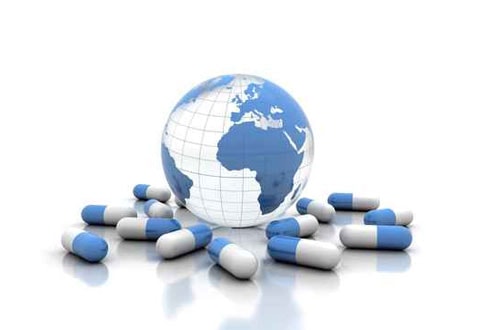
The global market for biosimilars will rapidly expand more than 20-fold in the next five years as these products transition from national to multinational sales, according to a new report.
The analysis by Frost & Sullivan suggests the market will rise from just $1.2bn last year to $23bn in 2019, driven by the entry of multiple new companies into the sector and – after years of promise – deeper penetration into the markets in Europe, the US and Japan, as well as emerging economies in Latin America and Asia.
“Already, Indian groups such as Dr Reddy’s Laboratories, Biocon and Reliance Life Sciences are making a concerted effort to enter the European market,” says F&S, although it indicates that this is still in the offing due to the “stringent regulatory pathway” for biosimilars in the EU.
Last year saw a significant milestone passed with the approval in Europe of the first biosimilar versions of a monoclonal antibody: Hospira and Celltrion’s copy of Johnson & Johnson’s Remicade (infliximab), which was approved in the indications rheumatoid arthritis, ankylosing spondylitis, Crohn’s disease, ulcerative colitis, psoriatic arthritis and psoriasis.
Europe’s regulatory framework is more mature, having first been elucidated several years ago, but biosimilar markets in the US and Japan will grow exponentially over the next five years with more clarity on the regulatory pathway, according to F&S.
Meanwhile, biosimilar developers are cutting their teeth in emerging markets with less intellectual property protection and will be able to launch quickly once the route is clear in established markets. For instance, Biocon said recently it will launch a biosimilar of Roche’s $6bn-plus breast cancer blockbuster Herceptin (trastuzumab) in India next month.
“On one hand, the market is powering ahead regarding the strength of participants’ global expansion strategies, and, on the other, it is still beset by traditional patent-infringement issues,” according to F&S Healthcare’s senior research analyst Srinivas Sashidhar.
Meanwhile, innovator companies are fighting back, with J&J recently securing an extension to the European patent life of Remicade until February 2015. Biosimilar companies can reduce their market access time by linking with other companies with expertise in biosimilars manufacturing and development, Sashidhar added, citing Teva’s alliance with Cephalon and Lupin Pharmaceuticals’ collaboration with Neuclone.
“In addition to mAbs, follitropins, interferons and low molecular weight heparins are likely to emerge in the long run,” he said. “However, some companies may focus on specific therapeutic classes depending on their capabilities and strategic fit.”




